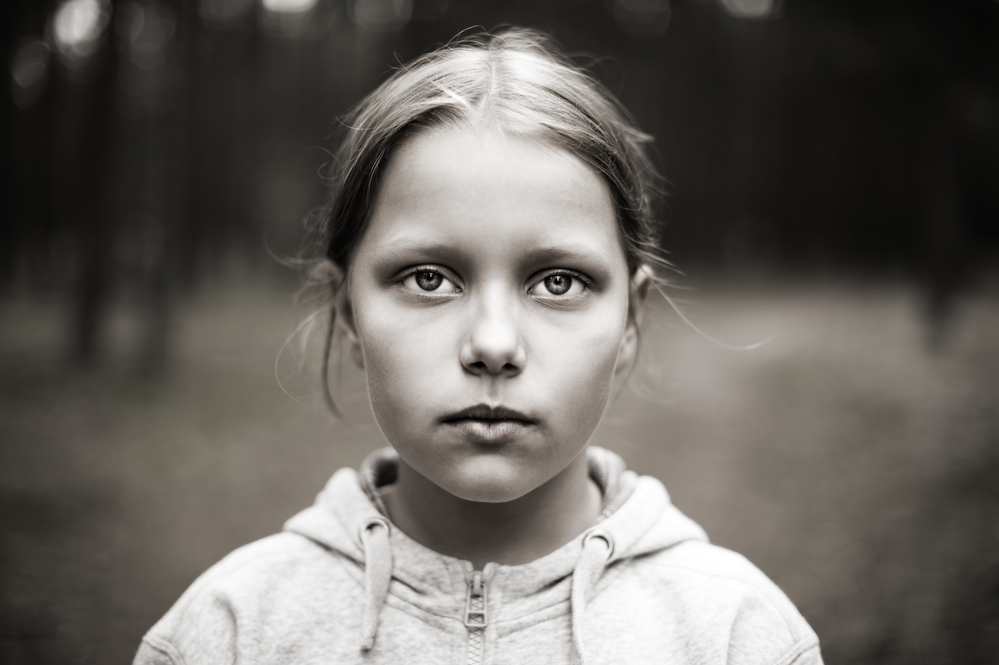A new study in JAMA Psychiatry finds that living in socioeconomic “deprivation” at birth and during childhood leads to an increased likelihood of psychosis and bipolar disorder. Kids who experienced “upward mobility” found their risk of these disorders drastically reduced, becoming equal to that of kids who never experienced deprivation.
The researchers add:
“Socioeconomic interventions that lift people out of more deprived environments earlier in childhood would mitigate future SMI risk.”
The researchers use the term SMI, but clarify that in the current study, this means psychosis (such as schizophrenia) or bipolar disorder.
The study was conducted by Yanakan Logeswaran, Jennifer Dykxhoorn, and James B. Kirkbride at University College London, and Christina Dalman at the Karolinska Institutet, Stockholm, Sweden.

The researchers defined areas of socioeconomic deprivation by creating a score that took into account income, social benefits, unemployment, and crime rate for each of the 9,209 “neighborhood” areas in Sweden in the Small Area Marketing Statistics (SAMS) registry. They also included population density.
The study included 26,729 people with psychosis or bipolar disorder, matched on age and sex with the same number of people without such a diagnosis, from a longitudinal population registry called Psychiatry Sweden.
Their findings:
“From birth until early adolescence, we observed strong gradients between living in more deprived and densely populated areas and future odds of psychosis, congruent with the social causation theory. These odds were ameliorated in proportion with the degree of upward mobility experienced during upbringing.”
The researchers controlled for such factors as family history of SMI. They write that this “lend[s] credence to a causal interpretation” of their results.
There is a reason it was so important to account for a family history of psychiatric diagnosis. Other researchers have theorized that families with SMI are more “cognitively impaired” and do poorly, resulting in them living in “deprived” environments; their children then also receive a diagnosis of SMI because it is supposedly genetic rather than caused by the environment. (No study has confirmed any part of this speculation.)
However, if one rules out genetics (in this case, through a family history of SMI), one is left with the environment as the main factor causing SMI. This was the case in the current study. Additionally, that upward mobility also reduced the risk of later SMI diagnosis is another key point that implicates the environment, not genetics, in the development of mental health problems.
Finally, another unsubstantiated theory is that “social drift” occurs, in which people with SMI experience downward social mobility, ending up in worse environments. However, in the current study, the researchers found that only 2.7% of those with SMI actually ended up in worse environments. Instead, people with SMI were more likely to stay in similar environments, rather than experience upward or downward mobility.
These findings are consistent with previous studies, which found that genetics, including the polygenic risk score, explains a tiny fraction—or none—of who ends up with psychosis, in contrast with socioeconomic status, trauma, and other environmental factors, which explain a large proportion.
One important limitation: the researchers note that because their results come from a Swedish sample, it’s unclear whether this result would generalize to other countries outside of the global north.
Still, they write that their results suggest that future researchers and policymakers should try lifting families out of poverty and seeing if that can reduce future psychosis and bipolar disorder diagnoses:
“Ambitious trials are now warranted to investigate whether moving people out of more deprived environments can ameliorate SMI risk. To our knowledge, no trial has tested such interventions regarding SMI, although the Moving to Opportunity trial has shown evidence that moving to higher-quality neighborhoods resulted in lower psychological distress in adolescence, although this may also have introduced unintended harms for some groups, including increased mental health risks for boys.”
****
Logeswaran, Y., Dykxhoorn, J., Dalman, C., & Kirkbride, J. B. (2023). Social deprivation and population density trajectories before and after psychotic disorder diagnosis. JAMA Psychiatry. Published online September 6, 2023. doi:10.1001/jamapsychiatry.2023.3220 (Link)















Studies such as this are always problematical because it’s almost impossible to match groups that are being compared. Another possibility is that children in the socioeconomically deprived group may have been more likely to be diagnosed with an SMI than children who were not deprived. This could especially be the case with bipolar disorder, a dubious condition.
Report comment
Wow, that’s jam packed with good and truthful information, Peter. Thank you. And I definitely agree, proper housing and nutrition, should both be societally prioritized, over anything the medical / psychiatric / psychological communities have to offer … that’s just plain common sense.
Report comment
Social drift has been know for centuries among the affluent, the cliche of a knight with a woden sword, the non fist male descendent when primogeniture was the law of the land speaks about it.
I do remember in economic history it’s a common motif: downward drift among the affluent. And it was probably not related to SMI, but on laws on inheritance and the dependence on rent from land owning, from which only the first male heir could benefit.
There are other factors in the mix to explain it, and none AFIR involves SMI as a significant factor. Like weatlh dilution when primogeniture was not important. And poor administration of wealth precisely because of privilege. Like I think Charlemagne illustrates, with some fights and invasions in the middle.
And also, the knights with no sword, given their nobility, could not devote themselves to commerce, they couldn’t be burgeoisie, when available, and a lot of professions/ocupations were “beneath” them. Hence with no income they drifted downwards. Was the time of the guilds too, so they couldn’t join.
What’s the odd ratio for: income, social benefits, unemployment, and crime rate?. How strong is the effect?.
To me, it’s more likely that those factors, ceteris paribus, makes one person with those more likely to be labeled, than to be causal. Skin tone speaks today of such unacknowledged factors in diagnosis SMI.
And to support that is the fact, that probably those SMI diagnoses weren’t blind to such factors, they were part of the clinical record, the social background, etc.
I want to see a psych professional doing diagnosis with a voice modulator behind a screen, only to find out that in a cruel joke he or she diagnosed with schizophrenia, blindly, his or her own daughter or son.
Like a cruel persian joke…
Report comment
Am I REALLY?….Are WE REALLY supposed to take these JAMA-Psychs seriously?….
The poor are preyed upon by the moneyed-class vultures, as has been the norm for centuries and millenia of human history….
So by what this bogus “study” is saying, giving poor people money would reduce mental illness! Psychs could just PAY their victims, uh, “patients”, and maybe even discover the WEALTH CURE for bad mental health illness condition disorder illnesses….
SEEMS LEGIT to me!
Report comment
Why don’t these “experts” just imagine how they’d feel living life without all their advantages???
Report comment
Yes, this seems like going through a lot to come to such a moderate conclusion.
What I have been taught is that psychosis or psychotic episodes get triggered. So if you have more triggering events in your vicinity you are more likely to get triggered. This does not explain the real source of the psychosis or how to remove it so that you won’t go crazy even in a situation that would be very triggering for most people.
Environment alone, no matter how awful, cannot explain psychosis either. How could a little child learn in a few short years how to become totally psychotic just by being mistreated or seeing others mistreated? They could learn how to mistreat others, but not how to go totally psychotic. Psychotic and other extreme behaviors come from a deep well of experience. To solve the problem that well much be plumbed. Who is going to stop messing around and do that work?
There are MANY reasons why we would all be better off if fewer people lived in poverty. This has got to me one of the weakest anti-poverty arguments I have ever seen. But I don’t see psychologists becoming social policymakers any time soon. So their dreams for a world free of pain and strife will probably go unfulfilled.
Report comment